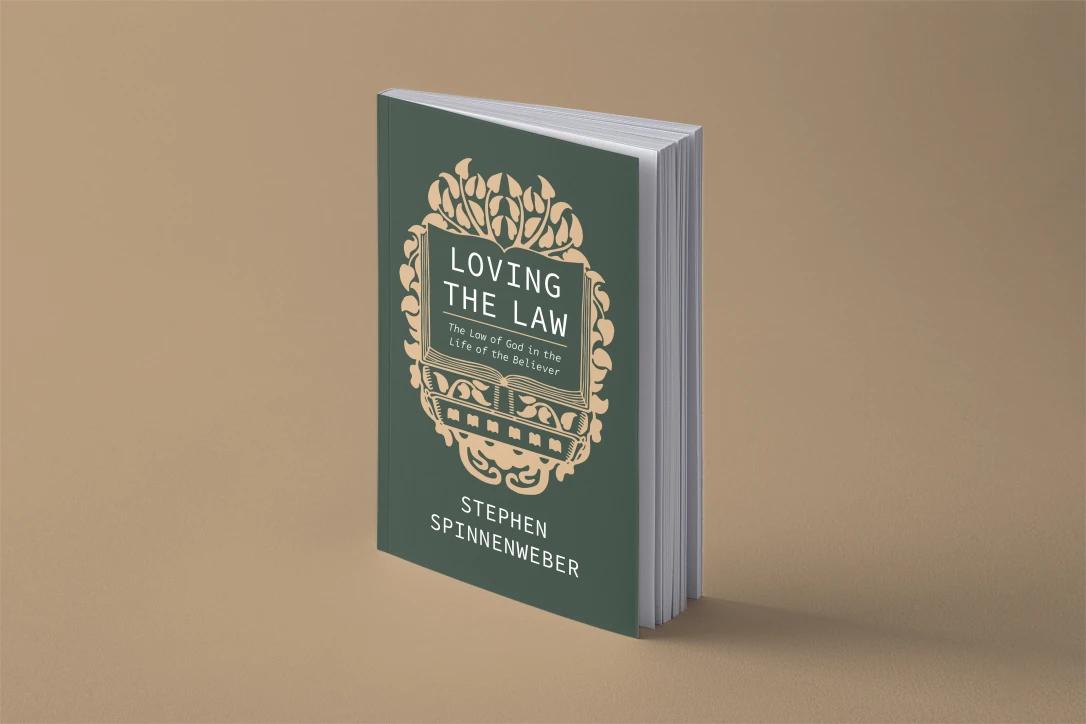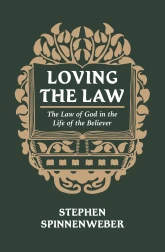Loving the Law
The law of God is intrinsically good. Believers can use it to good and God-glorifying ends. The law is used to reveal our need for the gospel, as it is the perfect revelation of the righteousness that God requires of all who bear His image. It also protects believers from those who would seek to do us harm, as it is God's muzzle, subduing sin in us and in our neighbors to clear the way for the spread of the gospel and the growth of the church on earth. Life works best when we live in conformity to God's law.

It’s not every day you run across someone who professes their undying love for speed limits, income taxes, or building permits (that is, except the IRS, politicians, and lawyers!). As fallen human beings, we all have, to one degree or another, an instinctual aversion to the law. “The law,” we grumble, “is opposed to my happiness. It’s designed by those who want to stick their nose into my business and keep me from doing what I want to do.” And, indeed, this aversion to the law is understandable. Earthly governors seem to have a knack for enacting needless laws and wrapping endless red tape around every day matters of life. This has caused many in the Western world to beat the drum of “freedom” more vigorously now than ever. This aversion to bad laws, however, should not poison us against the good and proper function of the law, and especially the law of God revealed in holy Scripture.
Believers today need a change of heart concerning the law of God. Aside from this general distaste for anything that we feel restricts our personal autonomy, many genuine believers have been conditioned to think that the law of God is essentially bad and bad for us—that condemnation is baked into the law itself. But this is simply not the case, for if condemnation were essential to the law, then Adam and Eve would have been condemned by the law long before they ate the forbidden fruit. The law of God is holy, righteous, and good (Rom. 7:12). When God beheld His creation and saw that it was good, and that the man and woman He made in His image were very good, this included the Moral Law that was written upon their hearts. Condemnation is only accidental to the law—the law only became a problem once sin entered into the picture. Our great nemesis then is not the law itself, but our sinful hearts that either reject the law outrightly or use the law in ways that God has not ordained.
The aim of Loving the Law is to demonstrate that the law of God is intrinsically good and that believers can and should use it to good and God-glorifying ends. Though there is no shortage of bad ways to use the law, believers have three basic ways that they can use the law, and all of them perfectly consistent with the purposes of the gospel. When used in the ways that God intends, the law actually promotes and protects our freedom in Jesus Christ. How so?
The law, according to its first use, like a mirror, reveals our need of the gospel. The law is the perfect revelation of the righteousness that God requires of all who bear His image but contains none of the power to attain that righteousness. The law beckons us not to itself, but to Jesus Christ for all our righteousness.
In its second use, the law protects believers from those who would seek to do us harm. The law is God’s muzzle, subduing sin in us and in our neighbors in order to clear the way for the spread of the gospel and the growth of the church on earth. Life works best when we live in conformity to God’s law, and this is true for believers and unbelievers alike. Of course, this prompts the question of how much of God’s law we can reasonably expect our neighbors to obey. If we insist that it is wrong that anyone should murder, whether Christian or not, and that it is good and right for our respective nations to punish murders with the force of law, then why wouldn’t we make the same case for sins like idolatry, false worship, and blasphemy? Shouldn’t Christians desire the state to punish such wrongdoing as well? Christians have grappled over this issue for centuries. Though some will approach this matter in what they think is a simple, straight-forward manner, questions like, “Do you love God’s law or not?” do not do justice to the complexity of the issue before us nor ring with the spirit of Christian charity. The question is one that the church needs to consider and is addressed briefly in the pages of this book.
Finally, the law promotes and protects our freedom in Christ by distinguishing true freedom from its many counterfeits. In the book of Galatians, Paul sought to inoculate his readers against the deadly doctrine of the Judaizers who insisted that circumcision was necessary in order for one to be acceptable to God. Paul flatly denied this in Galatians 5:1, “For freedom Christ has set us free; stand firm therefore, and do not submit again to a yoke of slavery.” Paul couldn’t have been clearer—believers need not submit to an elaborate list of rituals, ceremonies, or Old Testament laws in order for God to delight in them. The Judaizers had forgotten what David said so long ago in his famous penitential psalm, “For you will not delight in sacrifice, or I would give it; you will not be pleased with a burnt offering. The sacrifices of God are a broken spirit; a broken and contrite heart, O God, you will not despise” (Ps. 51:16-17). Works and sacrifices were never the way to be made right with God; such thinking only leads to bearing heavy burdens and succumbing to spiritual bondage. It is only by grace through faith that we are free in Jesus Christ, free from the guilt and condemnation of our sin, free from its reigning power, and free and enabled to do what was impossible for us to do before—now we can live lives that bring a smile to our Savior’s face. And what is it that truly pleases Him? When we live in obedience to His commands—Behold, to obey is better than sacrifice, and to listen than the fat of rams (1 Sam. 15:22).
When thinking of the importance of the law of God to believers, an old saying comes immediately to mind, “A place for everything and everything in its place.” My hope is that Loving the Law will convince you of just that—that there is a positive place for the law in your life, and that you needn’t be afraid to use it.



